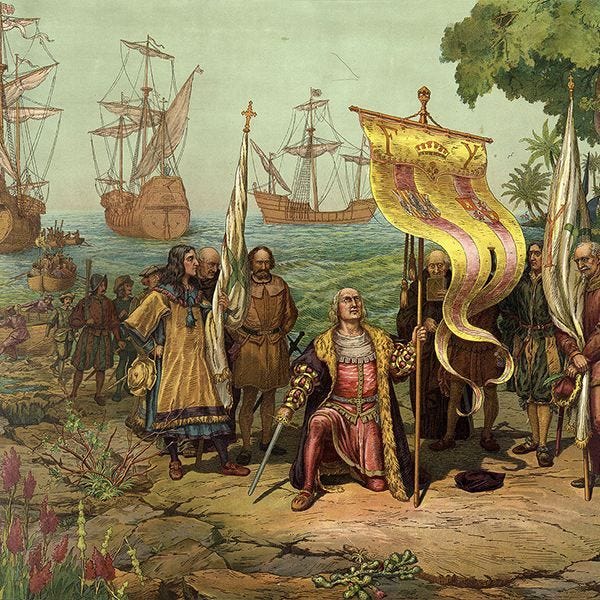How to Stand Up to Your Parents
Eastern Family, Western Individual
The value of the individual most significantly distinguishes eastern cultures from western ones. In Eastern cultures, such as in Chinese and Indian cultures, the family is primary and the individual is secondary. This means what is best for the family takes priority over the desires and needs of the individual because eastern cultural philosophy assumes that what is best of the collective is ultimately best for the individual anyway. This is because collectivist social structures assume that the differences between individuals is negligible and therefore all their desires may be fulfilled in a similar way. “Everyone may lead a satisfying and rewarding life by becoming a doctor or engineer.” To some extent they are right; most people do have very similar basic needs and some structure and expectation is preferable to the aimless wandering that plagues the youth of many modern western youth.
However, the result of this concept when taken to an extreme, is that collectivist cultures produce a lot less creative energy than individualistic cultures because art and creativity is necessarily an individual endeavour.
An excellent piece of evidence for this conjecture is the fact that it was not until the Renaissance that new ideas about the portrayal stories were introduced in Western Civilisation, and the Renaissance was the first time that the individual artist was distinguished from the collective artisan group. Of note in this story of the Renaissance is Vasari’s famous book “The Lives of the Most Famous Sculptors, Painters and Architects” published in 1550. Besides giving excellent accounts of artists such as Leonardo Da Vinci and Michelangelo, it reminds us that before the Renaissance, the idea of the Artist as an individual did not exist as such. All art before the invention of the artist, although magnificent in its own right, was stagnant and had not changed for centuries; each depiction of the annunciation and of the Madonna and Christ was alike in its egg-tempera iconography.
In fields other than the fine arts, we find the individual spirit in things like explorers traversing oceans to find strange continents, people spending their lives tinkering and inventing new things. Of course there are plenty of inventions and explorers in other cultures as well, but where these things are found, there is also an individual who chose to break away from the collective, and undertake the “impractical” endeavour. Such individuals would rarely have had parents who understood, let alone approved of what they were doing.
It is uncertain from where this energy of the individual over the collective sprang in the West in the first place, but it is true that it is only in the energy of the individual that we find great achievements, breakthroughs and creative explosion.
Even though civilisation is a group project in many ways (one pair of hands alone cannot build a cathedral), it is equally true that the visionary ideas that direct and energise civilisation are individual in origin. A cult of personality is the spear-head for the greatest changes that penetrate the status quo in every dimension of human civilisation.
The dominance of Western Civilisation over the world throughout the last millennium is undeniable. From the lingua franca, to the measurement of time, to the recording of history itself, it is the West that has shaped humanity most powerfully and this is in spite of the fact that the West is comparatively much smaller in number to its Eastern competitors. Indian and Chinese cultures promote the collective good at the cost of the individual in many ways. The individual may be comfortable, but it is only through discomfort and risk that anything great can ever be accomplished.
Without delving too much into complex geopolitics, it is a simple enough observation to make that eastern cultures discourage pure learning for its own sake: they discourage their children from studying history, pure mathematics, fine art, literature or philosophy. Perhaps it is practical of them. There is a good reason why Indian and Chinese families are some of the highest earners in Western countries and that reason is that they do not permit their children to “waste time in useless degrees”. However, the cost of this pragmatism is that though they may produce many practical victories, they do not shape or change society in significant ways. They are interested primarily in survival and so they never look up from the grindstone to look to the higher states that Man may achieve.
But sometimes they do...
For we have not settled where this energy of individualism comes from and we find that it springs up in individuals now and then despite their cultural influences, even in Eastern collectivist cultures. In fact, this individualistic energy is more likely to spring up in the hearts of people from traditionally collectivist cultures when they are exposed to western ideas and philosophies of life.
This introduces the phenomenon of the Western Individual with the Eastern Family and such individuals naturally have a significant conflict with their parents and family in the pursuit of their life’s endeavours.
It takes a great deal of courage to stand up to your parents especially with respect to decisions that differ significantly from their ideas of the way to live a good life. This may be related to arranged marriages, choice in degree, choice in career, choice in which city one will move to, or even something as small as choice in diet. If you truly wish to embark on life on your own terms, it is important for a young person from an eastern cultural background to be able to stand up to his/her parents.
How can a person navigate this conflict without sacrificing his or her relationship with their family? There are a few strategies to navigate this diplomatic challenge gracefully.




